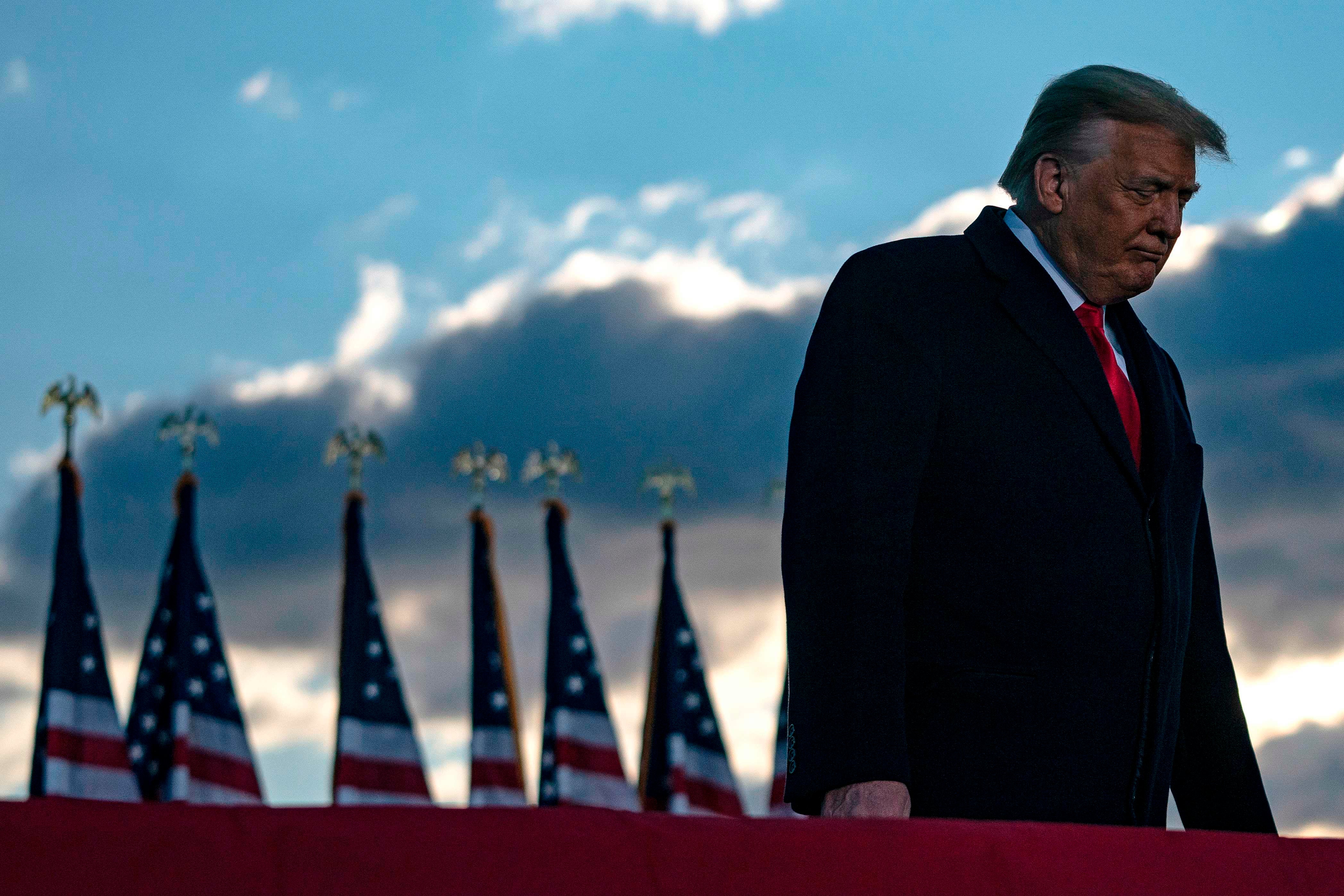The mafia-fighting judge who could hold Prince Andrew and Trump's futures in his hands
Judge Lewis A Kaplan has previously heard cases involving the New York mob and a Guantanamo prisoner, writes Andrew Naughtie


It has been a busy week in New York’s courts – especially as far as two of the world’s most high-profile men are concerned.
Prince Andrew suffered a setback in his fight against a lawsuit brought by Virginia Roberts Giuffre, who claims he sexually assaulted her as part of Jeffrey Epstein’s sex trafficking ring (the prince denies the charges). He has so far avoided Ms Giuffre’s lawyers’ attempts to serve him with legal papers, but during a telephone hearing on Thursday, they were offered a chance to find another way of serving papers on the prince – raising the chance he will have to answer questions about Ms Giuffre’s claims on legal record.

Meanwhile, Donald Trump was dealt another blow when he failed in his latest fight against the defamation case brought by E Jean Carroll, who alleges that then future president raped her in a New York department store in the 1990s. Mr Trump, who has denied the claim in part on the basis that Ms Carroll wasn’t “his type”, has sought to have himself replaced as defendant by the Department of Justice – but this week, his lawyers were denied a “stay” in the case, meaning it can go ahead after months on hold.
Aside from the global reputations of their protagonists, what do both cases have in common? Judge Lewis A Kaplan, who has had some of the most famous defendants of recent years cross his desk.
Even by the standards of the federal US bench, the Staten Island-born Judge Kaplan’s career has seen him an array of remarkable cases, including some that touch on major social developments in just the last few years.
Donald Trump and Prince Andrew’s cases represent historical allegations that have resurfaced in the wake of the #MeToo reckoning, which was ignited partly by the election of Mr Trump himself despite numerous sexual assault allegations against him. And Judge Kaplan has been involved in other major cases that cropped up after the movement gained momentum – specifically the proceedings against actor Kevin Spacey.
In May this year, the Senior US District Judge for the Southern District of New York ruled that one of the men accusing Mr Spacey of sexual assault and rape (when the accuser was 14 years old) could not continue with his claim while remaining anonymous in court, writing in his opinion that “the threat of significant media attention – however exacerbated by the modern era – alone does not entitle a plaintiff to the exceptional remedy of anonymity”.
According to Judge Kaplan, allowing the plaintiff to remain anonymous would have put Mr Spacey at a disadvantage during discovery (though the actor’s team did apparently learn his identity) while making it harder for him to mitigate against reputational damage – all while the accuser sought over $40m in damages “from behind a cloak of anonymity.”
Fairness, the judge decided, demanded that the accuser pursue his case publicly. He ultimately declined to reveal his identity in public, and as a result was dropped from the case.
But besides sexual assault allegations against wealthy and powerful men, Judge Kaplan has also many times overseen cases involving the mafia – among them a major case against members of the notorious Gambino crime family, one that involved allegations of racketeering, murder conspiracy, extortion, sex trafficking, and other offences.
At one key point in that trial, a defence lawyer argued that some charges should be thrown out because one of the government’s co-operating witnesses had himself been involved in running the criminal network under investigation, and had also abused an underage girl in the 1990s. Judge Kaplan was having none of it: “The FBI’s use of convicted criminals as confidential informants or cooperators, while perhaps distasteful, is necessary and appropriate,” he decided.
Alongside these matters, Judge Kaplan has played roles in cases that touch on fundamental questions of human rights. In 2010, he dismissed a claim brought by Ahmed Khalfan Ghailani, a man who had been detained in Guantanamo Bay for nearly five years without trial for his alleged role in the 1998 US embassy bombings. Ghailani claimed that the length of time he had spent incarcerated violated his sixth amendment right to a speedy trial.
Judge Kaplan disagreed. “There is no persuasive evidence,” he wrote, “that the delay in this prosecution has impaired Ghailani’s ability to defend himself in any respect or significantly prejudiced him in any other way pertinent to the speedy trial analysis.”
Ghailani was ultimately found guilty of conspiring in the bombings, and was sentenced to life in jail. Denying a request for leniency, the judge said Ghailani’s treatment while in custody “pales in comparison to the suffering and the horror he and his confederates caused”.
These are just some of the cases with which the 76-year-old judge has been associated – cases that have seen him come down on both sides in battles between the more and less powerful. As they face the prospect of fighting their own battles in US courtrooms, Donald Trump and Prince Andrew are in inauspicious company indeed.






Join our commenting forum
Join thought-provoking conversations, follow other Independent readers and see their replies
Comments